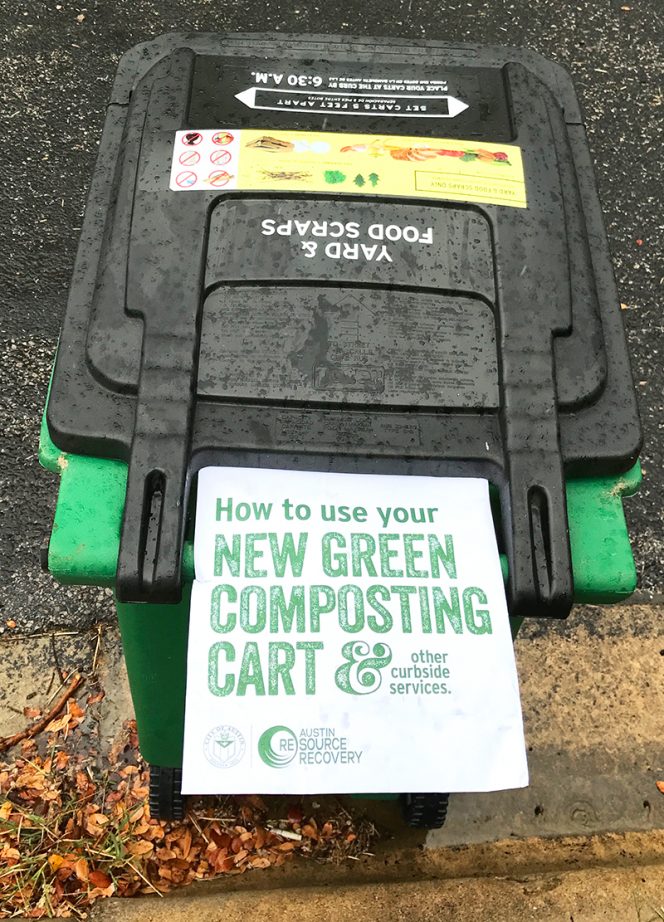
Executive Director, Biodegradable Products Institute, Inc.
As a BioCycle alumnus and lifelong devotee, I appreciate your latest Editorial, “The 2020 Compostable Packaging Narrative.” I could not agree more that it is high time for a new narrative on compostable packaging within our broader collective industry. I’ve written about this more than a few times in the pages of BioCycle, and have led the Biodegradable Products Institute (BPI) down a path of being more engaged, responsive to big challenges impacting composters like PFAS and labeling, and even updating our organization’s bylaws at the end of 2019 to not just open our Membership to composters and municipalities, but also create a few seats for them on our Board of Directors.
I believe the situation outlined in the Editorial is bigger than narrative, or a simple decision about packaging. It’s really about whether scalable organics diversion is going to happen or not, as the companies working on compostable packaging as part of their food waste mix sit right in the crosshairs. This gets at why I joined BPI back in 2015, to build on the roots of the residential food scraps surveys I helped conduct as a BioCycle staff member.

Image courtesy city of Austin, Texas.
To put it simply, I don’t think we will succeed in getting widespread curbside food scrap composting in my lifetime without brand owners and restaurants advocating for it (and identifying funding). This will largely come in the form of consumer awareness campaigns of what composting is and why it’s important, and through corporate commitments to recycling and composting. As the Editorial says, these brands have a big role to play, not just in the packaging they make or use, but in supporting the rollout of a national composting infrastructure. Growing source separated organics to a national scale is a big opportunity for the composting industry, with businesses and communities signing new contracts to divert material. But brands and restaurants won’t make these necessary investments given the high degree of uncertainty (and current unlikelihood) of composters being willing to accept more than just food waste.
Right now, by and large, I don’t see the majority of composters wanting to participate in this “narrative” by making voluntary commitments to accept BPI-certified compostable packaging, nor have they shown urgency to work with BPI to resolve these recognized challenges. I get that contamination and lack of access are significant, but they are influencing state policies in ways that will make it nearly impossible for the generators of food waste and packaging to find solutions.
We need state level policies that go further than what is being proposed today to overcome these hurdles. Policies that identify the waste collection services communities will need to offer to households and businesses, so that we get consistent and harmonized, and can actually meet our environmental goals. Sally Brown’s column last week hits the nail on the head. It’s time to go all of the way. That’s the only way education will work as a means for reducing contamination, and the only chance for brands to be willing to commit to investing in compostable solutions in a big way. And it’s fair for these policies to identify adequate funding, in order for the public to understand the real costs of waste diversion.
California, For Example
Just look at California as the state implements SB 1383, which requires communities to offer organics collection (defined as food scraps and yard trimmings) to households and businesses. The ultimate goal of SB 1383 is lowering emissions from short-lived climate pollutants. It’s a monumental piece of legislation and a huge step forward, but it will not move the needle on the packaging situation in California, and could lead communities away from source separated collection. The regulation allows communities to collect food scraps in traditional plastic bags, and only requires them to be screened out. Furthermore, communities will need a letter from a composter saying the facility does not screen out compostables in order for that community to be “allowed” to collect compostables in the first place. Are there any communities/composters in California that can meet that requirement today, that are willing to sign these forms about their acceptance of compostable products? My understanding is that most major California composters prescreen out all packaging, whether that’s through a depackager, picking line, or other means.
Next look at California’s proposed SB 54 legislation and the already enacted SB 1335, which is in final regulatory development. Both state that all single-use products and packaging as defined must be recyclable or compostable. The definitions for these categories are not just technical (e.g., ASTM), but are linked to whether the items are actually getting recycled or composted at very high rates — a minimum of 75%. If the state’s own policies addressing access to composting don’t say that compostables are part of the organics stream, and that it is “voluntary” based on what private composters allow, how will that rate ever be achieved? And why would brand owners and restaurants be willing to spend any time or money developing compostable solutions?
In other words, the situation is dire, and we need more than just a new narrative for 2020. California is a bellwether and sets the stage for the nation. So if California’s organics diversion regulation leads to the development of a statewide food waste composting system that is not capable of handling any compostable packaging, it doesn’t bode well for the possibility of a national scale composting network for businesses or households.
Partial Solution
Here’s a partial solution. In the SB 1383 regulations, redefine the “organic waste” that communities must collect to include certified compostable packaging, along with food and yard trimmings. Communities would require their haulers to offer that service to all households and businesses, meaning any additional costs could be assessed in those contracts. Composters could still decide whether or not to sign those contracts. And we would have a chance of standard education across the state about what is compostable.
Standardizing what goes in the green been across the state would greatly help reduce contamination, but is not sufficient in of itself. BPI has committed to cosponsoring legislation in California to address labeling and identification of compostable products, along with Californians Against Waste and Recology. BPI supports reducing the amount of packaging coming into composting facilities in the first place, with efforts to prioritize reusables for dine-in, and promoting single-bin solutions where all food packaging is compostable and can go in one bin with the food scraps.
I believe we have a chance to make food waste composting mainstream by working together, to show the world the role composting has as a climate change solution. We are not going to get there with a patchwork of rules about what is compostable set by each community. Sending everything through a depackager is throwing in the towel on source separated organics. This is a call to action to set our sights high, and get it right.
Rhodes Yepsen is Executive Director of the Biodegradable Products Institute, Inc.









